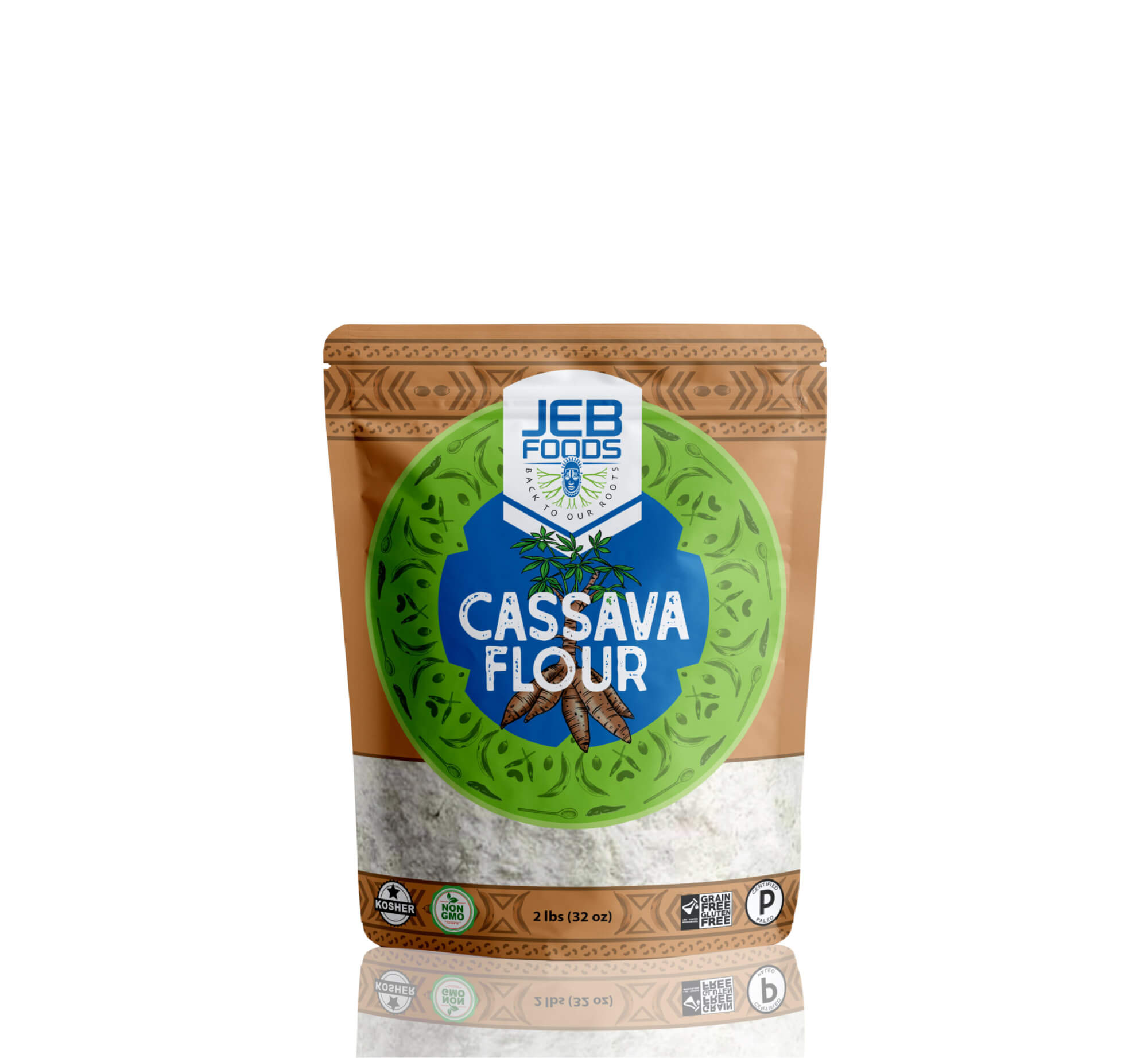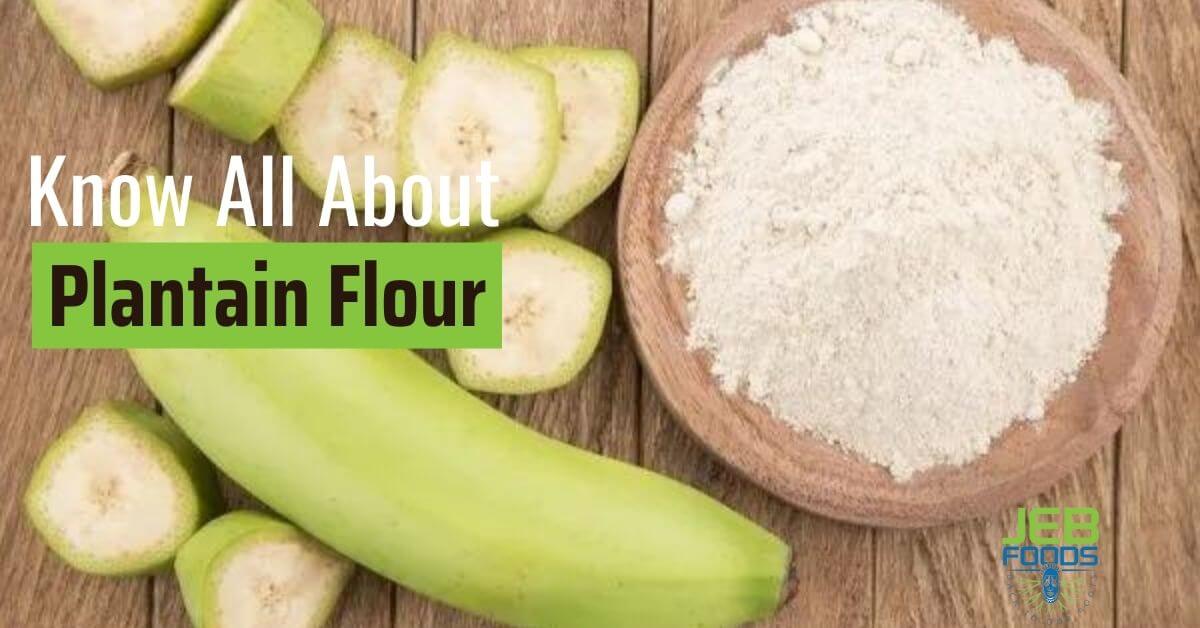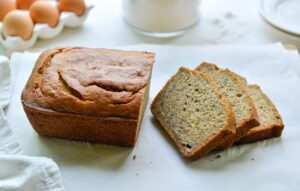The cassava flour we use in our products is a root vegetable that has been used as a staple food for millions around the world for centuries. Here are the nutritional facts should know.

CASSAVA – RAW (per cup)
Table of Contents
ToggleWe make sure to dry and grind this delicious, sustainable plant into clean-tasting flour so you can count on it again and again. You may have heard about its commonly known cousin tapioca – while they both come from the same source, their function differs quite differently when baking or if you eat them too many times per day. It might help to think of Tapioca as cornstarch whereas Cassava Flour could be compared with Cornflour. Though they are found in similar contexts (baking), these roots fulfill different needs.
- Calories 328
- Saturated fat 0.2 g
- Polyunsaturated fat 0.1 g
- Monounsaturated fat 0.2 g
- Cholesterol 0 mg
- Sodium 29 mg
- Potassium 558 mg
- Total Carbohydrate 78 g
- Dietary fiber 3.7 g
- Sugar 3.5 g
- Protein 2.8 g
Boiled cassava root contains a few key nutrients. A 3.5-ounce (100-gram) serving of boiled cassava root provides 112 calories and 98% are from carbs, while the rest come from small amounts of protein and fat; it also includes fiber as well as vitamins C and niacin.
PROCESSING CASSAVA
Processing cassava can have a significant effect on its nutritional content. This is because many of the vitamins and minerals are destroyed by processing, as well food fiber has greatly reduced levels in processed foods like tapioca pearls. For example, 1 ounce (28 grams) of tapioca pearls provides nothing but calories with only small amounts of few nutrients such as iron or zinc.
Cassava is a root vegetable with 112 calories per 100 grams. However, it’s not as high-calorie as other roots like beets and sweet potatoes which have 44 and 76, respectively. This makes cassava important in developing countries because it provides significant amounts of energy to the population that can’t afford more expensive foods or those who are too busy for a balanced diet.
RESISTANT STARCH
You may have seen cassava before as the go-to starch for gluten-free baking. That’s because it is high in resistant starch, a type of fiber that bypasses digestion and has properties similar to soluble fiber.
The health benefits of this kind of dietary change are vast; firstly by feeding your gut bacteria with more beneficial fare like resistant starches, you help reduce inflammation and promote digestive health.
ABSORBS NUTRIENTS
The cassava plant is a valuable food source across the globe, but it contains natural substances that inhibit nutrient absorption. For example, saponins can reduce vitamin and mineral uptake by binding to them in your intestines before they are absorbed into the bloodstream.
Cassava is generally safe when it’s prepared properly and eaten occasionally in moderate amounts. A reasonable serving size of cassava root should be about 1/3-1/2 cup, depending on the individual’s preference for starchier or higher fiber content foods. Cassava can contain toxins called cyanogens that are found mostly in its peel, so peeling beforehand will reduce your risk as a consumer to harmful chemicals present naturally in this vegetable like glicogonin compounds which may induce convulsions if consumed raw without proper preparation methods such as soaking and cooking thoroughly before consumption (which also reduces toxin exposure).
Cassava Carbs
Cassava is a plant that grows in tropical regions. It’s not only useful as an alternative to potatoes, but it also has many positive health benefits! Cassava offers 39 grams of carbohydrates per ½ cup serving. There are just under 2 grams each of fiber and natural sugars contained within the cassava too–even more than you’ll find in potatoes. The majority of carbohydrates found on this healthy root vegetable comes from starch which may be beneficial for those who need some extra energy during their day or even before they exercise-especially if eating these carbs alone isn’t enough!
Cassava Fats
Cassava is high in protein and contains a low amount of bad fats. The only fat that it does contain becomes worse if you cook cassava with oil or butter!
Cassava Protein
Cassava is not particularly high in protein, with less than 2 grams per 1/2-cup serving. However, cassava leaves are edible and a good source of protein as they contain about 6 grams of proteins per cup!
Cassava Vitamins and Minerals
Cassava is a hidden gem in the world of nutrition. It contains so many vitamins and minerals that it’s hard to list them all for you! This humble root vegetable has potassium, vitamin C, most B-vitamins (except B12), Vitamin A, magnesium, selenium calcium iron contained within its fleshy exterior shell.
Cassava Prevents Malnutrition
Cassava is one of the most important vegetables in Africa and other tropical regions. It provides a balance to what people are eating, acting as an essential safeguard against malnutrition. Cassava roots can be stored for several growing seasons while they wait out periods of food scarcity – cassavas leaves also have nutritional benefits that help keep developing worlds fed.
Contact JEB Foods to get your cassava today.




